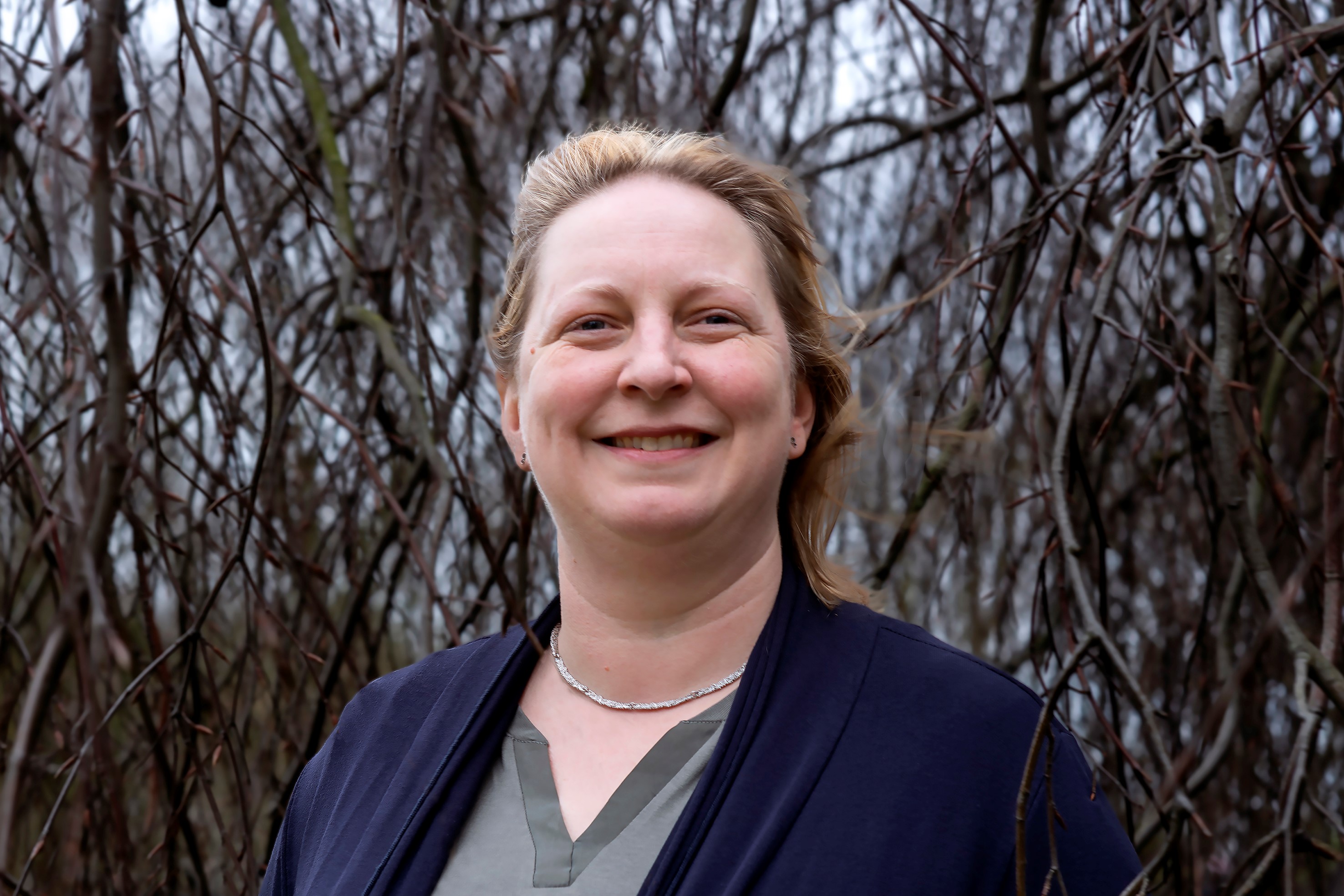Innovative Data Science research project wins award
A research project titled 'Intelligent games for assessing cognitive, social and physical capacities of elderly and children' was awarded a prize at Maastricht University's Pre-Dies Natalis symposium 'The Future of a Data-Driven Society' held on Thursday. Also at the symposium, Claudia Egher was declared the winner of the 'visionary essay competition'.
Video Symposium: The Future of a Data-Driven Society
The winning project's main objective is to reduce all the paperwork and other administrative duties facing teachers and support staff at preschool and primary education through games and intelligent sensors. According to the jury, the project stands out because of its modular research structure and the high number of students involved in it. The winning team consists of 8 students from DKE, 5 scientists from DKE, 3 researchers from SBE, 2 from FPN and 1 from the Faculty of Law. Established by Maastricht University’s Institute of Data Science, the award was made available by the Limburg University Fund.
Also during the symposium, Claudia Egher (FASoS) was proclaimed the winner of the 'visionary essay competition'. The jury praised Egher’s essay, titled "Digital morning or manic by design", for its vision of big data, and for giving the reader a sense of what it will be like to live in a new, big-data future. The essay was published on the Data Science @ UM community website. It was written ‘with a great sense of style’ and has 'a surprising twist'.

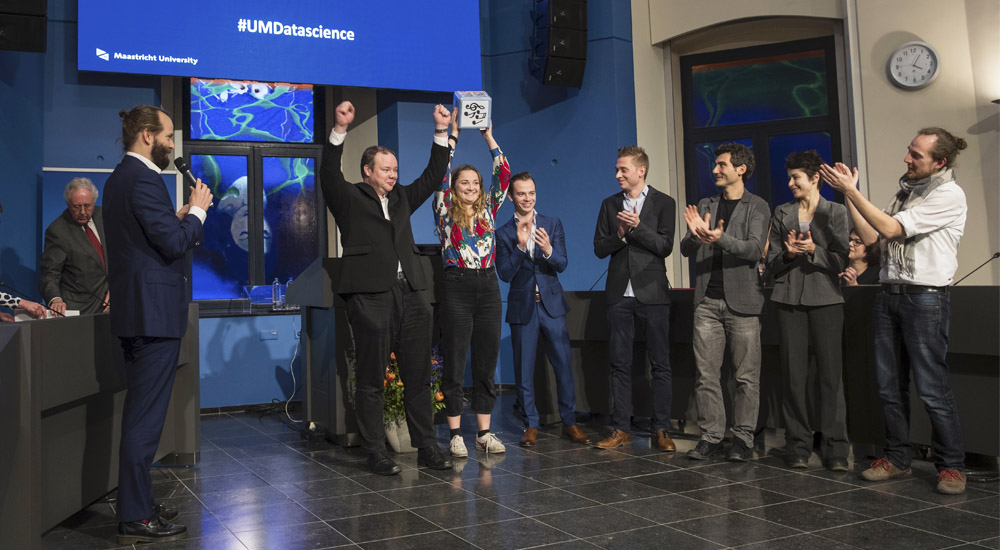
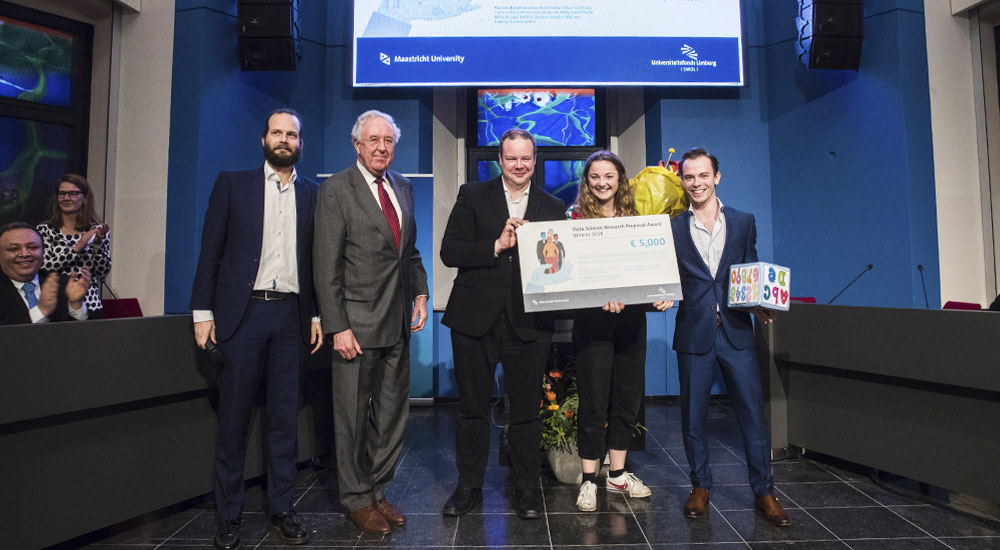
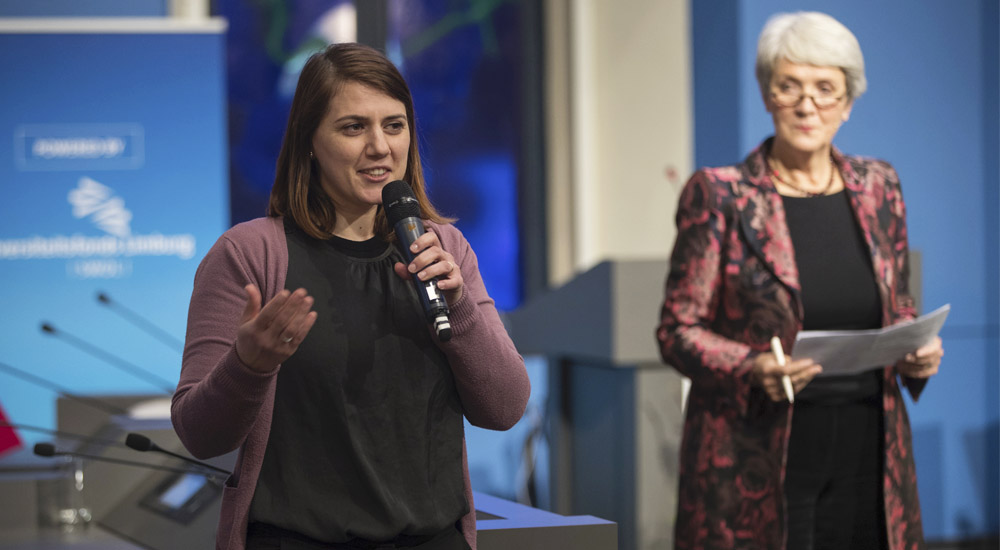
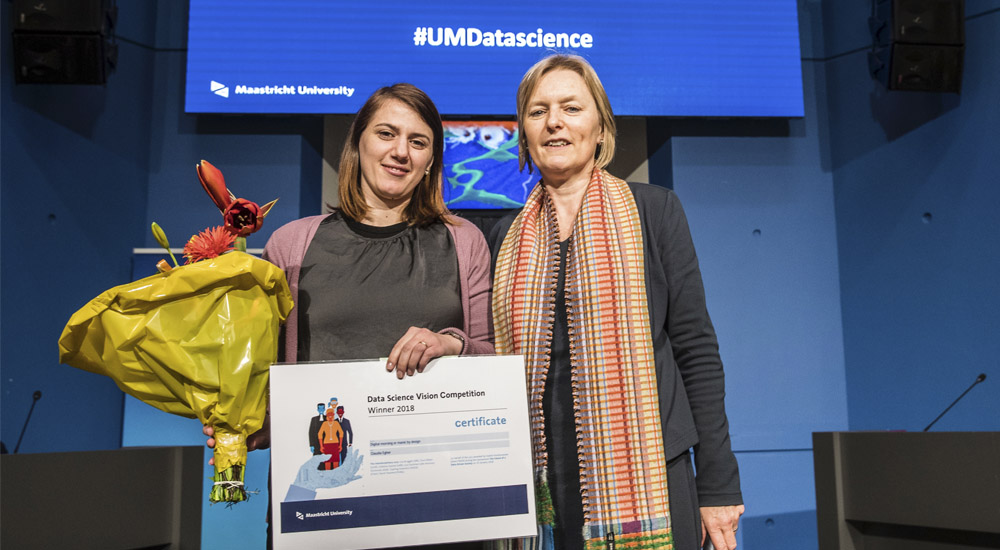
Members of the prize winning team present their research project titled 'Intelligent games for assessing cognitive, social and physical capacities of elderly and children'.
Winner of the 'visionary essay competition' Claudia Egher.
A photo impression of the presentations and award ceremonies.
Photography: Harry Heuts
Also read
-
"I am proud that our new Circular Plastics group published its first completely in-house research," Kim Ragaert says. She founded the research group three years ago, when she moved to Maastricht. Her work has laid the foundations for many innovations in the field of plastic recycling, and she is...
-
Programming quantum computers, like the quantum computer itself, is still in its early stages. Quantum computing researchers tend to be physicists, mathematicians, or computer scientists who have a special interest in the mathematical framework of quantum mechanics.
-
Atoms and smaller elementary particles behave in unusual, sometimes unpredictable ways. It sounds strange, but it is this unpredictability that gives a quantum computer its power. Executing precise calculations with previously unheard-of possibilities in a way that physicists still do not completely...
